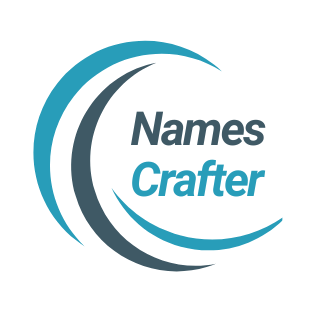Kickstart Your Software Engineering Career: Top Bootcamp Choices to Consider
Starting a career in software engineering can feel overwhelming, especially when faced with the growing demands of the tech industry. But there’s a solution that makes it easier than ever to break into the field: bootcamps. Whether you’re aiming to transition into a tech career from another field, or you’re looking to enhance your current skills, software engineering bootcamps offer immersive learning experiences that can help you accelerate your career journey.
One area that often catches the eye of aspiring engineers is UI/UX design. A UI design bootcamp offers hands-on training that equips you with the essential skills needed to create intuitive and user-centered designs, which is an in-demand skill in software development.
Why Choose a Bootcamp for Your Software Engineering Career?
Bootcamps have been rapidly growing in popularity in recent years for a variety of reasons. Unlike traditional degree programs that can take years to complete, bootcamps are short-term, focused, and intense programs designed to get you job-ready in a matter of months. They offer the hands-on training and real-world experience that you need to not only understand the theory behind software engineering but also apply it in practical settings.
- Short and Focused Learning Timeline Bootcamps are typically designed to be completed in a few months. The entire structure of a bootcamp is meant to be an immersive, full-time experience where you’ll learn everything from the fundamentals to advanced concepts in a short amount of time. For someone looking to transition into software engineering quickly, this is a much more efficient path compared to the years it would take to earn a traditional computer science degree.
- Industry-Relevant Skills The tech industry evolves quickly, and staying up-to-date with the latest trends and technologies is crucial. Software engineering bootcamps provide a curriculum that’s continuously updated to reflect the skills most in demand by employers. You’ll learn the tools, programming languages, and software development methodologies that are directly applicable in the industry.
- Hands-On Training Unlike theoretical classroom learning, bootcamps provide hands-on training that mirrors the actual work you’ll be doing on the job. Whether it’s coding projects, team collaboration, or client interactions, bootcamps offer you real-world experience that will better prepare you for the challenges of a software engineering career.
- Mentorship and Support Most bootcamps pair students with industry professionals who act as mentors. These mentors are experienced software engineers who provide guidance, feedback, and insights into the industry. This one-on-one support helps you refine your skills and gain practical knowledge that’s hard to find in books or online tutorials.
- Networking Opportunities In addition to mentorship, bootcamps offer the opportunity to connect with like-minded individuals and professionals in the industry. You’ll be surrounded by other students who are just as passionate about software engineering, and instructors who have worked in the tech field for years. Networking in a bootcamp setting can often lead to job opportunities or introductions to key people in the industry.
Key Bootcamp Options to Consider
If you’re serious about getting into software engineering, it’s important to choose a bootcamp that best fits your needs, schedule, and learning style. Below, we break down some of the best bootcamp options that can help you launch your career in software engineering:
1. Flatiron School
Flatiron School is known for its software engineering bootcamp, which offers both in-person and online options. The school’s comprehensive curriculum covers all the essential skills needed for a successful career in software engineering. Students learn to code using popular programming languages like Ruby, JavaScript, and Python, and dive into important development tools such as Git and SQL.
Flatiron School’s strong job support system ensures that graduates are well-prepared for the job market. The bootcamp has a strong track record of helping students land jobs in top tech companies, with a focus on career coaching and networking opportunities. Graduates of this program often go on to work in companies like Google, Facebook, and Microsoft.
Pros:
- Flexible learning options (in-person and online)
- Strong post-graduation career support
- Excellent job placement rate
Cons:
- The cost can be high, but financial aid is available
2. Hack Reactor
Hack Reactor is one of the most renowned coding bootcamps, particularly for aspiring software engineers. Their immersive 12-week program is designed to turn beginners into software engineers. The curriculum emphasizes JavaScript, a highly sought-after programming language in the tech industry.
Hack Reactor’s program is fast-paced and intensive, with a focus on practical, real-world projects that give students experience working in a collaborative environment. The bootcamp also offers job support services that include resume review, interview preparation, and career coaching.
Pros:
- Highly regarded by employers
- Emphasis on JavaScript and full-stack development
- Strong focus on real-world applications
Cons:
- The pace can be overwhelming for beginners
- Higher tuition costs
3. Le Wagon
Le Wagon is an international coding bootcamp that offers a variety of programs, including a full-stack software engineering course. The curriculum focuses on full-stack web development, with training in Ruby on Rails, JavaScript, HTML, CSS, and more.
Le Wagon is unique in that it offers both in-person and online options, making it accessible to students around the world. They emphasize the importance of learning through doing, so students can expect plenty of hands-on coding projects.
Pros:
- International presence, ideal for global students
- Collaborative learning environment
- Focus on full-stack development
Cons:
- The course is a bit shorter, so it may feel a bit rushed for those with no prior coding experience
4. General Assembly
General Assembly offers a software engineering bootcamp that combines both front-end and back-end technologies. Their curriculum includes coding in JavaScript, HTML, CSS, and Python, as well as working with tools like Git, Node.js, and APIs.
General Assembly also provides career support and networking opportunities. Their career coaching services include interview prep, job search strategies, and portfolio building.
Pros:
- In-depth focus on both front-end and back-end technologies
- Strong career support and resources
- Access to a wide network of employers
Cons:
- Cost is on the higher end, but financial aid is available
5. Thinkful
Thinkful offers a flexible software engineering bootcamp with a focus on mentorship and real-world projects. The program covers topics such as JavaScript, Python, Git, and SQL. Thinkful’s curriculum is designed to be flexible, allowing students to work at their own pace and fit their studies around other commitments.
One of Thinkful’s key strengths is its 1:1 mentorship, which provides personalized support and guidance. The bootcamp also offers job placement assistance, which can be extremely valuable as you prepare to enter the workforce.
Pros:
- Flexible learning schedule
- 1:1 mentorship and career coaching
- Job guarantee (with certain conditions)
Cons:
- Can take longer to complete compared to other bootcamps
6. TripleTen UX/UI Design Bootcamp
If you’re interested in diving into the world of software engineering with an emphasis on design, TripleTen’s UX/UI Design Bootcamp might be an excellent choice. The bootcamp provides students with a comprehensive understanding of design principles, wireframing, prototyping, and user-centered design strategies. Upon completion, you’ll be equipped with the skills needed to create intuitive, user-friendly designs, which is a crucial skill for modern software engineers.
Pros:
- Focus on user experience and interface design
- In-depth curriculum covering tools like Figma and Adobe XD
- Real-world design projects to build your portfolio
Cons:
- More design-focused, so may not suit those only interested in programming
7. App Academy
App Academy is a full-stack software engineering bootcamp that offers a rigorous curriculum and extensive career support. What sets App Academy apart is its unique tuition model, where students don’t pay until they secure a job post-graduation. This can be a great option for students who are hesitant about taking on student loans but are confident in their ability to land a job after completing the program.
Pros:
- No upfront tuition cost
- High job placement rates
- Focus on full-stack development with real-world projects
Cons:
- Very competitive entry process
- The program is intensive, and the pace may be overwhelming for some
Final Thoughts
Software engineering bootcamps are an excellent way to kickstart your career in tech. With the right program, you can acquire the skills and experience needed to land a job in one of the most lucrative and in-demand fields today. Whether you’re interested in a general software engineering role, or a specialized focus like UX/UI design, there’s a bootcamp option for you.
Take your time to research and choose the bootcamp that aligns best with your goals, learning style, and financial situation. And remember, whether you’re training for coding or design, the bootcamp you choose will set the foundation for your successful career in software engineering.







